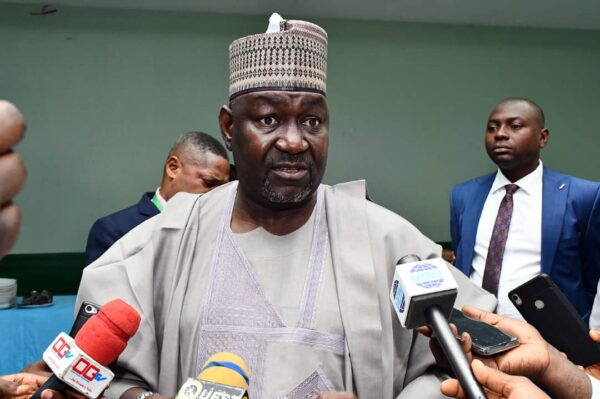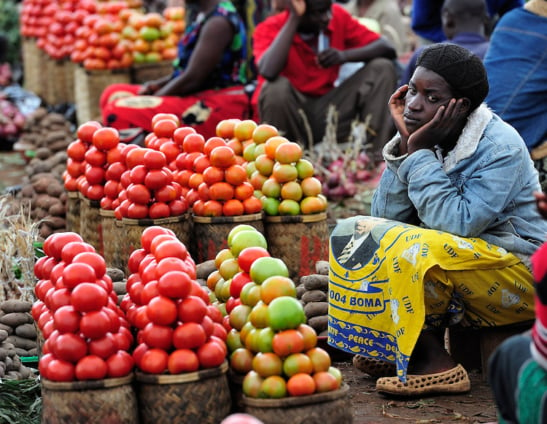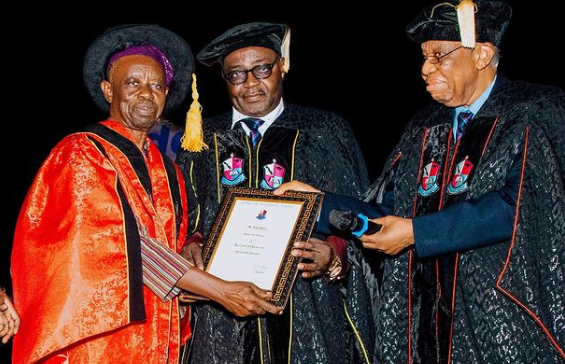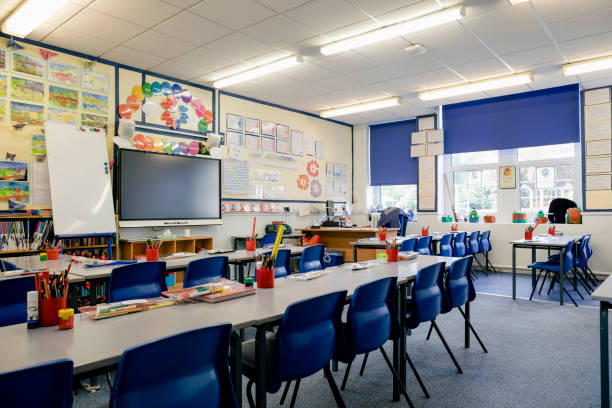Abubakar Aliyu, minister of power, says the current administration will leave an installed capacity of about 22,000 megawatts (MW) of electricity.
Aliyu said this on Tuesday in Abuja at the 11th edition of President Muhammadu Buhari‘s Scorecard Series (2015-2023)’.
The annual event is designed to show off the achievements of various ministries to the media and the general public.
According to Nigeria Electricity Regulatory Commission (NERC), Nigeria’s total installed capacity currently stands at 10,396 MW.
Advertisement
He said the President Muhammadu Buhari-led administration will also ensure Nigeria is on a path for 8,000MW of electricity supply.
He said the 8,000MW comprises 5,000MW on-grid and 3,000MW of industrial captive off-grid.
“We will set the country on a stable path for 10,000 megawatts of the supplied energy,” he said.
Advertisement
“Today, we are at 8,000 megawatts with 5,000 megawatts on-grid and above 3,000 megawatts of industrial captive off-grid. And we will leave an installed capacity of almost 22,000 megawatts.
“There are ongoing programmes with facilities and investments secured at more than $3 billion to eliminate the gap between transmission capacity and supplied energy.
“We will complete and commission the 700MW Zungeru Hydro Power Plant in the 1st quarter of 2023. We will also see to the operationalisation of the 240MW Afam III and 300MW Okpai Phase II to mention a few.
“The Hydropower component of the Kashimbila Multipurpose Dam was designed and upgraded from six megawatts to 40 megawatts.
Advertisement
“This was in phase one of the evacuation infrastructure, covering 245km of 132kv transmission lines and three substations, connecting Takum, Wukari, Rafin Kada, Dounga and Yandev in Taraba and Benue States.
“Phase two of the evacuation infrastructure is currently at 45 percent completion level.
“This is covering a 56km extension of the 132 kilovolts (kV) transmission line from Yandev to Makurdi and complete rehabilitation of the Yandev substation.
“Phase two of the evacuation infrastructure will lead to the electrification of 24 host communities, including Zaki-Biam, Anyi, Buruku, Birama, Bibi, Shibong, among others within Benue State.”
Advertisement
Aliyu said the administration had changed the narrative of the sector from consumption spending on subsidies to real infrastructure spending.
He said 105 power transformer projects were completed from 2015 to 2022, adding a capacity of 6,216 megavolt ampere ( MVA) to the grid.
Advertisement
“This is with 73 of the power transformers installed by TCN engineers in substations across the nation,” the minister said.
“Some of the completed Power Transformer and Substation projects are 150 MVA, 330 and 132 kilovolts (kV) Interbus Power Transformer at Ughelli, Delta IV Transmission Substation.
Advertisement
“Also, there are 150MVA, 330 and 132kV Power Transformer at Ayade Transmission Substation, 2x150MVA 330 and 132 and 33kV Substation at Lafia, Nasarawa State.
“There is also the 2x60MVA 132 and 33kV Dawaki/Gwarinpa Substation which was recently completed in November 2022 under the Abuja Feeding Scheme.
Advertisement
“Others are 2x60MVA 132 and 33kV Gagarawa Substation, 2x60MVA 132 and 33kV Substation at Adiabor, 2x30MVA 132 and 33kV Yelwa Yauri, 1x30MVA 132 and 33kV Ilashe Substation, 1x40MVA 132 and 33kV Substation at Bichi.”
The minister also said that a number of substations and bay extensions were being completed and expected to be inaugurated by the first and second quarters of 2023.
According to him, the substations are “2x150MVA, 330/132/33kV and 2x60MVA 132/33kV Substation in Akure, 2x150MVA 330/132/33kV Substation at New Apo” under the Abuja Feeding Scheme, among others.
He also said a review of the Nigerian Electricity Supply Industry (NESI) showed that the sector recorded progress.
“In the recent October billing cycle, the sector recorded a new milestone with the highest ever collections in history at N74 billion,” he said.
Additionally, Aliyu said tariff shortfalls had been reduced by more than 80 percent even as the ministry is on the path to having a sustainable market.
Add a comment






